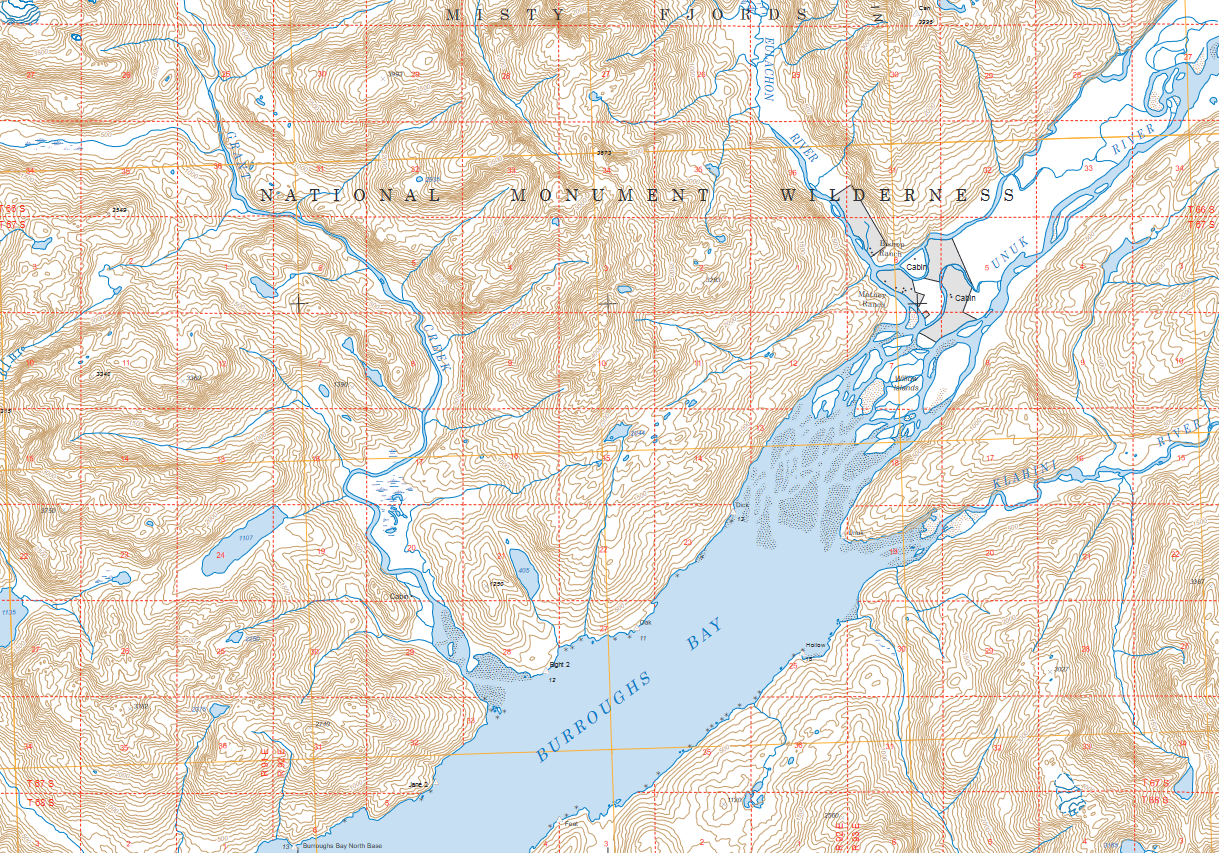
Tribes near Ketchikan submitted evidence Jan. 30 to the Canadian and British Columbia governments that they hope will give them a voice in transboundary mining discussions. The tribes say the evidence proves they’ve had a historical presence along the Unuk River, which runs through the border.
Southeast Alaska tribes have long demanded a seat at the table in how Canada manages mining projects that affect lands and waters across its border.
On January 30, a coalition of the Lingít, Haida, and Tsimshian Tribal governments submitted testimonial evidence to protect the Unuk River, one of their river watersheds. The tribal group fears the watershed could be damaged by a proposed open-pit gold mine on the other side of the border.
The coalition is called the Southeast Alaska Indigenous Transboundary Commission (SEITC) and represents 15 tribes and tribal groups in Alaska and Canada.
“The border that transects these transboundary rivers is a completely false construct. Nothing in nature respects that line on the map – the water, the salmon, the people, the wildlife, nothing respects that. What happens in the upper reaches of these trans boundary rivers will impact our tribes, our communities, and our tribal citizens,” said Guy Archibald, SEITC’s executive director.
The evidence submitted by the commission, which includes personal testimony from tribal members of Metlakatla and other communities along the border, is meant to demonstrate the Lingit people’s historic presence along the Unuk River. The river, northeast of Ketchikan, is an established wild salmon habitat and holds cultural significance to Alaska Natives. And the tribal governments say it is under threat from Eskay Creek Mine, a silver and gold mining project proposed upriver in British Columbia,.
Essentially, the tribes are alleging that unregulated mining across the border in Canada is conflicting with the tribe’s obligation to protect traditional lands for future generations.
Tazia W’ally Sthaathi Ta Wagner, a member of the Wolf Clan in Metlakatla, testified that she grew up harvesting hooligan, moose and king salmon on the Unuk and plans to protect that cultural right.
“I would love to see us do another community harvest on the Unuk River again and see those bright smiles on everyone’s faces one more time. And to bring hooligan again to our elders, that is what I would really love to happen in the future, for generations to come,” she said.
Skeena Resources, Ltd, the Vancouver-based mining company in charge of the mining proposal, did not respond to repeated requests for comment.
Earthjustice, the organization representing the tribal commission, has also brought a case against the Canadian government alleging that their refusal to consult with Alaska Native Tribes on large-scale mining development is an international human rights violation. The claim was recently recognized by the Inter-American Commission on Human Rights.
“This isn’t a new right. I mean, these are rights that go back millennia,” said Earthjustice attorney Ramin Pejan. “The ownership of the Unuk River and the territory and the use of that river is integral to their culture, to their subsistence. It goes back thousands of years before these borders were in place.”
Pejan said the goal is to capitalize on recent Canadian legal precedent to get the country to consult with Alaska tribes properly – the way they would for tribes protected under the Constitution in Canada. Something that Guy Archibald said felt hopeless a few years ago – even from the state of Alaska.
“Alaska signed a [Memorandum of Understanding] with British Columbia to have a trans-boundary working group,” Archibald alleged. “They did that without any consent or consideration of the tribes. It’s bilateral. It’s between Alaska and BC. The tribes are not involved. And the state doesn’t share any of that information with us.”
Then, a door opened back in 2021. That door was the Desautel case – an indigenous American citizen tried in Canada’s courts for killing an elk in British Columbia without a hunting license. The defendant lived on a reservation in Washington and argued that he was exercising his Aboriginal right to hunt in the traditional territory of his ancestors. Archibald explained that the case forced the Canadian Supreme Court to ask a central question.
As Archibald put it, “Do indigenous, non-resident people of Canada – people who live outside of Canada but have ties to traditional lands within Canada – have any rights to those lands? And the Supreme Court said yes.”
Pejan said that the Eskay Creek Mine case is the first case through that door opened by Desautel but it is by no means the biggest. It is dwarfed by the KSM Mine, a proposed project that would be one of the largest open-pit mines on the planet.
If the coalition succeeds, it would be the first time in history that a US-based tribe is granted “Participating Indigenous Nation” status in Canada. The country has never legally recognized US-based Indigenous peoples as stakeholders in the country’s policy decisions.
“You know, we keep hearing that these resources are so abundant. They’re just infinite. Like the buffalo?” Archibald, an environmental chemist by trade, complained, citing his past as a miner and what he calls “the standard mining company line.” “And on and on. And then we keep making the same mistake over and over and over again.”
For Archibald, the chances to make mistakes are running out.
“Alaska is the last stand,” he said. “These transboundary rivers are the last undeveloped salmon spawning rivers left in North America. If we don’t get it right here, then we’ve run the table. There is no place further to go. So this is the place to make the stand.”
Get in touch with the author at jack@krbd.org.





